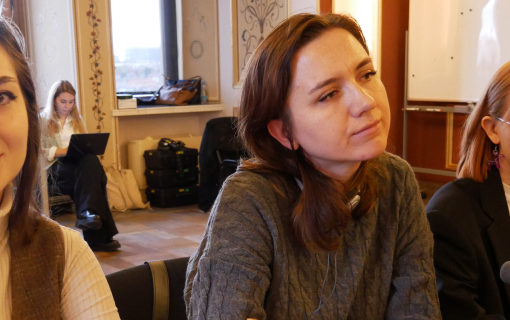IFES’ Survey on the Status of Women in Libya
It is critical that women have a voice in the decision making process while nations transition to peace – this has been mandated by United Nations Security Council Resolution 1325 on Women, Peace and Security. When the needs of both men and women are heard, the resulting systems created for the transitional country will be more sustainable. This is what IFES is helping partners to achieve in Libya.
Empirical information about women in developing countries is often lacking, particularly in nations experiencing or recovering from instability where women are the most vulnerable. In an effort to strengthen equal participation, IFES supports women’s empowerment and gender equality by collecting qualitative and quantitative data. Generating a strong base of data and evidence strengthens programming by:
- Providing IFES and other partners critical information to tailor programming to respond accurately to the specific needs of men and women in transition
- Bolstering advocacy efforts of civil society organizations, including women-led civil society organizations, that are working to increase gender equality and women’s empowerment in emerging and recovering government institutions
In post-Arab Spring Libya, major decisions are being made that will impact its future as a democratic country. There is concern that the space for women in government and policy making is shrinking as deep-seated cultural beliefs about the roles of men and women are more freely expressed.
These beliefs leave women at home, and excluded from meaningful engagement in the country’s transition.
IFES’ Survey on the Status of Women in Libya provides insight into women’s and men’s perceptions about gender, leadership, development and the overall state of affairs in Libya. Notably, the survey underscores traditionally-held beliefs about the roles of women and men. For example, many more women than men expressed support for women becoming involved in politics. However, the survey also confirms trends emerging from the Arab Spring. For example, an overwhelming majority of women surveyed would like to be actively involved in the country’s transition.
With this invaluable information, IFES and its partners are supporting efforts across Libya to increase access to political processes for women. The Status of Women Survey in Libya has been a vital tool that provides an accurate window into the will of Libyan women and men, and affirms international standards for gender equality and women’s empowerment.









